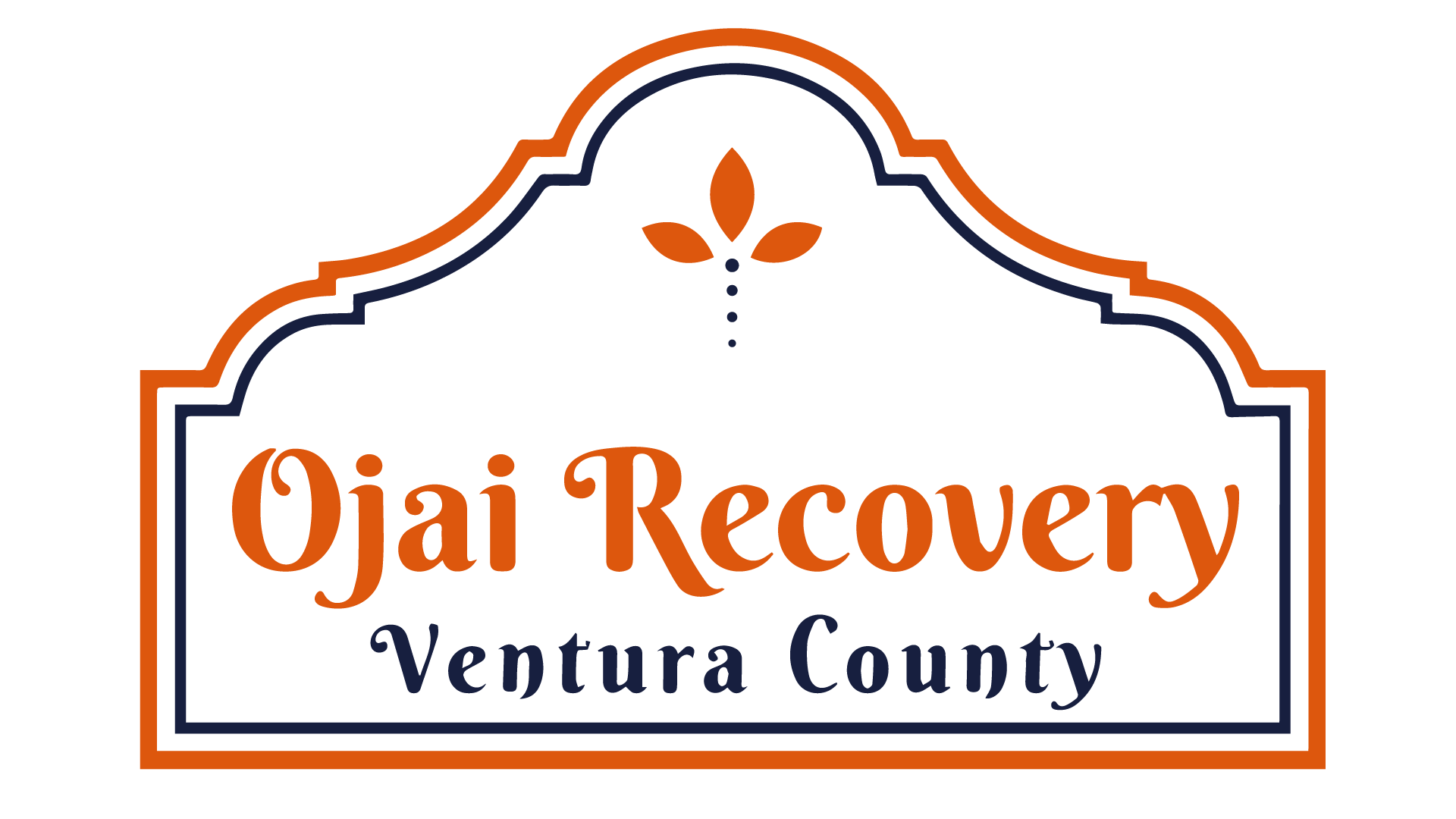Why Choose Ojai Recovery
Choosing the right facility for drug and alcohol addiction treatment is crucial to recovery. Ojai Recovery stands out for its comprehensive and tailored approach to rehabilitation, especially through its outpatient rehab programs.
Ojai Recovery’s Treatment Approach
Ojai Recovery employs evidence-based methods and individualized treatment plans designed to address each person’s unique needs. This person-centered approach allows you to engage in therapy that resonates with your situation. Treatment may include modalities like cognitive behavioral therapy (CBT), motivational interviewing, and group therapy, ensuring that you receive a well-rounded experience.
In outpatient rehab, you participate in scheduled therapy sessions at a clinic or private practice. Appointments can be arranged 1-5 days a week, with each session lasting between 30 minutes to an hour. This flexibility allows you to maintain your daily responsibilities while receiving the support you need.
For further details on scheduling and types of therapy, consider exploring our outpatient alcohol rehab programs.
| Treatment Features | Outpatient Rehab |
|---|---|
| Session Frequency | 1-5 days per week |
| Session Duration | 30 minutes to 1 hour |
| Treatment Environment | Home or sober living |
| Support Groups | Twelve-step programs (AA, NA) |
Continuum of Care Options
Ojai Recovery offers a continuum of care, ensuring that you receive the necessary support throughout your recovery journey. After an initial assessment, clinicians will recommend a suitable treatment path based on your individual situation.
Outpatient treatment allows for flexibility, enabling you to continue working and maintain close contact with family and friends while receiving the help you need. Options include:
- Partial Hospitalization Programs (PHP): Typically involves 5-6 hours of treatment each day, providing a more intensive level of care while allowing you to return home each evening.
- Intensive Outpatient Programming (IOP): Focused on around 3 hours of treatment daily, this option is designed for those who require structured care but still wish to engage in daily life outside of treatment (Addiction Center).
By offering various levels of outpatient care, Ojai Recovery addresses the diverse needs of its clients, providing a personalized approach to rehabilitation. If you’d like to know more about the benefits of outpatient programs, visit our page on outpatient drug rehab.
Choosing Ojai Recovery means selecting a rehabilitation experience that prioritizes your success and well-being, empowering you to reclaim your life from addiction.
The Need for Comprehensive Treatment
Statistics on Drug Overdoses
Understanding the severity of substance abuse is crucial for recognizing the importance of comprehensive treatment options such as outpatient rehab. In 2022, nearly 108,000 individuals in the United States died from drug-involved overdoses, which averages out to nearly 296 fatalities each day. This statistic highlights the urgency for effective treatment methods. Unintentional poisoning from drug overdoses has become the leading cause of injury-related death in the U.S. from 1981 to 2022.
| Year | Drug-Involved Overdose Deaths |
|---|---|
| 2022 | 108,000 |
| Daily Average | 296 |
A survey conducted by the Substance Abuse and Mental Health Services Administration (SAMHSA) revealed that more than 95% of individuals needing drug rehab in 2023 did not receive the necessary care. This underscores the importance of accessible, comprehensive treatment options like those offered at Ojai Recovery.
Importance of Customized Care
Successful treatment for substance addiction should be customized to meet the specific needs of each individual. Research indicates that a significant number of people do not complete their treatment, with less than 43% of individuals entering treatment for drug and alcohol use finishing the program (American Addiction Centers).
Relapse rates for drug and alcohol use are estimated to be around 40-60%, resembling those of other chronic diseases, such as hypertension and diabetes. This highlights the necessity for continual evaluations and modifications in treatment plans to ensure effectiveness.
Ongoing recovery aftercare programs play a crucial role in supporting individuals post-treatment. Participating in individual or group therapy can help strengthen coping skills, provide necessary support, and address unique challenges related to recovery.
Choosing Ojai Recovery ensures that individuals will receive a personalized approach to treatment, significantly improving their chances for long-term recovery and a healthier life. For further information on the services Ojai Recovery offers, explore their range of alcohol detox and drug rehab programs.
Outpatient Rehab Programs
Outpatient rehab programs are a viable option for individuals seeking treatment for drug and alcohol addiction. Understanding the benefits of these programs, as well as comparing them to inpatient options, can help you make an informed decision.
Benefits of Outpatient Rehab
Outpatient rehab offers numerous advantages that can aid in your recovery process. Some of the key benefits include:
- Flexibility: Outpatient programs allow you to continue working or attending school while receiving treatment. This means you can maintain your daily responsibilities and social connections without significant disruption.
- Convenience: Appointments can often be scheduled around your lifestyle, and outpatient care may include options for telehealth services. This is particularly useful for people who struggle to attend in-person sessions (SAMHSA).
- Focus on Skills: Outpatient therapy sessions typically aim to develop skills for long-term sobriety, including relapse prevention and psychoeducation. You will participate in individual and group counseling, where you’ll engage in exercises and activities to support your recovery at home.
- Support Networks: Many outpatient programs include participation in support groups like Alcoholics Anonymous (AA) or Narcotics Anonymous (NA), providing ongoing community support even after completing an inpatient program (Addiction Center).
| Benefit | Description |
|---|---|
| Flexibility | Continue with jobs or studies while in treatment |
| Convenience | Telehealth options available for ease of access |
| Skill Development | Focus on skills for relapse prevention and long-term recovery |
| Community Support | Access to support groups for sustained sobriety |
Comparison: Inpatient vs. Outpatient
When choosing between inpatient and outpatient rehab, it’s important to consider the differences in structure and support. Here’s a straightforward comparison:
| Aspect | Inpatient Rehab | Outpatient Rehab |
|---|---|---|
| Duration | Stays can last from a few days to several months | Sessions scheduled typically 1-5 days per week |
| Environment | 24/7 supervised care in a residential facility | Treatment at clinics or private practices |
| Time Commitment | Full-time commitment with specific schedules | More flexible; can adjust to individual needs |
| Isolation | Often involves separation from everyday life | Allows for continued engagement with work and family |
| Focus | Intensive treatment with a structured environment | Emphasis on outpatient therapy and community support |
Outpatient rehab can be an effective and flexible option for those in need of treatment while still managing their daily lives. For more insights on specific types of rehabilitative services, check our listings for outpatient drug rehab centers and outpatient alcohol rehab programs. Understanding these benefits can empower you or your loved one to make a positive step toward recovery.
Health Insurance Coverage
Understanding health insurance coverage for addiction treatment can empower you in your decision-making process as you seek help for yourself or a loved one. It’s crucial to know your rights and options under federal laws.
The Affordable Care Act and Rehab
The Affordable Care Act (ACA) mandates that health insurance coverage for addiction treatment is considered an essential benefit. This means that marketplace insurance plans must cover behavioral health treatment, which includes psychotherapy, counseling, mental and behavioral health inpatient services, and substance use disorder (SUD) treatments.
| Coverage Type | Must be Covered? |
|---|---|
| Psychotherapy | Yes |
| Counseling | Yes |
| Inpatient Services | Yes |
| Outpatient Programs | Yes |
These inclusions ensure that individuals seeking help for addiction have access to necessary treatments without facing prohibitive costs. It is recommended to verify your specific plan details to understand the extent of the coverage applicable to programs like outpatient rehab, which can be an effective option for many.
Mental Health Parity Laws
In addition to the ACA, the 2008 Mental Health Parity and Addiction Act plays a critical role in ensuring that health insurers provide coverage for mental health, behavioral health, and substance use disorders in a manner similar to their physical health coverage. This act mandates that:
- Health insurance must cover at least some of the cost of therapy for substance misuse.
- Coverage for inpatient addiction treatment and various outpatient programs, including intensive outpatient drug and alcohol rehab programs, must be comparable to other medical treatments.
This means that if you have health insurance, you should expect to see comparable coverage levels for addiction treatment as you would for other medical issues. For added information on how different rehabilitation programs are classified, consider checking resources related to alcohol rehab centers, drug detox, and outpatient drug rehab options available in your area.
Therapy and Aftercare Support
Significance of Therapy in Recovery
Therapy plays a vital role in the process of recovery from drug and alcohol addiction. Successful treatment requires customization, continual evaluations, and modifications as necessary. Unfortunately, less than 43% of individuals entering treatment for substance use complete it, highlighting the need for ongoing support to improve outcomes (American Addiction Centers).
Engaging in therapy allows you to delve deeper into the underlying issues that contribute to substance use. Individual or group therapy sessions provide a safe space to address personal struggles, develop coping mechanisms, and build healthier habits. Continuous participation in therapy after completing a formal treatment program is beneficial for obtaining support and practicing unique recovery-related skills (Rehabs.com).
Here are some common types of therapy used in addiction recovery:
| Type of Therapy | Description |
|---|---|
| Cognitive Behavioral Therapy (CBT) | Focused on identifying and changing negative thought patterns and behaviors associated with substance use. |
| Dialectical Behavior Therapy (DBT) | A form of CBT that emphasizes emotion regulation and mindfulness techniques. |
| Group Therapy | Allows individuals to share experiences and support one another in a group setting. |
For those considering outpatient rehab, incorporating therapy into your recovery plan is essential.
Importance of Aftercare Programs
Aftercare programs are crucial for maintaining sobriety after completing a rehabilitation program. Successful recovery often requires sustaining a sober lifestyle, which may involve changing friendships and habits, as reverting to old ways can trigger a relapse.
Aftercare can include regular check-ins with therapists, participation in support groups, or enrollment in ongoing outpatient rehab programs. Continuing treatment provides you with the necessary support to navigate life’s challenges while reinforcing coping strategies learned during your initial treatment.
Types of aftercare options include:
| Aftercare Type | Description |
|---|---|
| Individual Counseling | One-on-one sessions to address personal challenges and relapse prevention strategies. |
| Support Groups | Peer-led meetings such as Alcoholics Anonymous (AA) or Narcotics Anonymous (NA) to foster community support. |
| Sober Living Homes | Transitional housing that provides a drug-free living environment while continuing recovery efforts. |
Insurance coverage should extend to therapy and aftercare support services, including outpatient rehab options (Rehabs.com). Ensuring you have a solid aftercare plan in place can significantly enhance your chances of long-term recovery.
Considerations for Healthcare Workers
Substance Abuse Among Medical Professionals
Healthcare workers face unique challenges in their profession that can contribute to substance abuse. Studies show that medical professionals are just as likely to develop a substance use disorder (SUD) as those in other industries. The high-pressure environment, long hours, and emotional demands of the job can lead to increased risks of addiction. Moreover, research indicates that approximately half of individuals with a substance use disorder will also experience a mental health issue, highlighting the complex relationship between addiction and mental illness.
Signs of substance abuse in healthcare professionals can manifest in various ways, which may include:
- Missing work or important events
- Frequent accidents or illnesses
- Mood swings or changes in personality
- Suspicious behavior related to substances
It’s crucial for healthcare workers to recognize these signs in themselves or coworkers, as timely intervention can lead to better recovery outcomes.
Tailored Treatment for Healthcare Workers
Ojai Recovery understands the specific needs of healthcare professionals dealing with substance abuse. Treatment programs designed for medical professionals incorporate tailored approaches that address both addiction and co-occurring mental health conditions, ensuring comprehensive care (American Addiction Centers).
These specialized programs often include:
- Personalized therapy sessions focused on the unique stressors of healthcare jobs
- Group therapy designed for professionals, fostering a safe space for shared experiences
- Flexible outpatient rehab options that allow individuals to maintain their careers while undergoing treatment
Participating in tailored treatment programs can significantly improve the chances of recovery for healthcare workers, helping them regain control over their lives and careers. If you or someone you know is struggling with substance abuse in the healthcare field, exploring options like outpatient rehab can be a vital step toward recovery.










